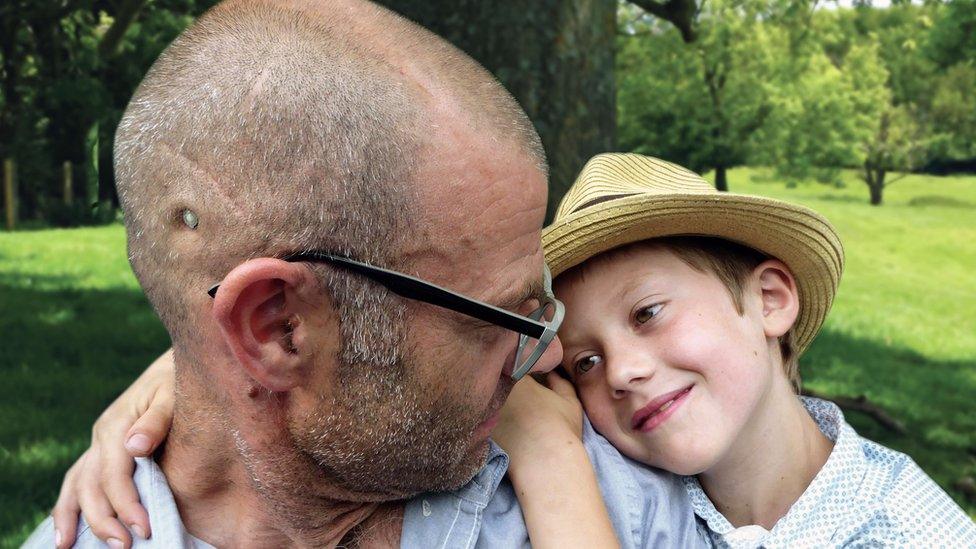Bath Parkinson's patient fundraising for second medical trial
- Published

Darren Calder has cycled from Saltford, near Bath, to London to raise more than £20,000 for a new Parkinson's medical trial
A Parkinson's patient who said his life was transformed by a now discontinued medical trial is raising money for a second trial to help others benefit.
Darren Calder, from Bath, had treatment to renew dying brain cells, but the trial ended after mixed results.
Mr Calder has cycled from Saltford, near Bath, to London, raising £20,000 for a new study led by Parkinson's UK to prove the efficacy of the drug.
He said: "If I can bring it back for everybody else. I have done my bit."
Parkinson's causes parts of the brain to become progressively damaged, resulting in a range of symptoms, such as involuntary shaking and stiff, inflexible muscles.
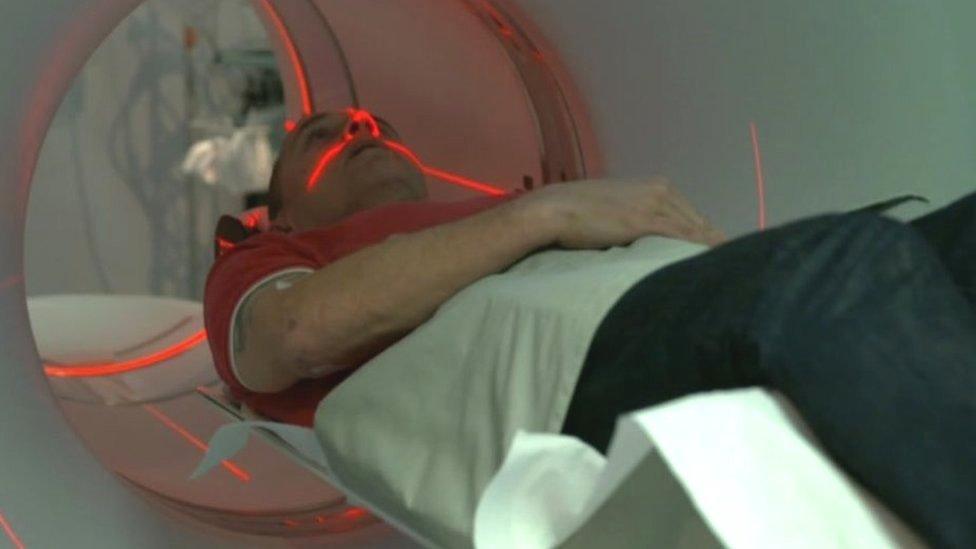
Mr Calder took part in the medical trial four years ago
Four years ago, Mr Calder was one of 42 Parkinson's patients who took part in a world first medical trial at the North Bristol NHS Trust.
The experimental treatment, called glial cell line-derived neurotrophic factor [GDNF], involved injecting a long metal probe into the brain, to infuse a type of brain cell known as GDNF, to bring dying cells back to life.
The trial ended because the GDNF and the control group both showed improved symptoms, meaning it was not clear whether the drug was responsible for the benefits.
However, Steven Gill, the neurosurgeon who pioneered the treatment at Southmead Hospital, said scans on Mr Calder and other patients showed the signal in his brain affected by Parkinson's had improved by 100% over the course of nine months.
Mr Calder said: "I've always said I've had this illness for a reason, and I believe it's to help people.
"I will carry the GDNF banner wherever I go until we get GDNF back into clinical trials."
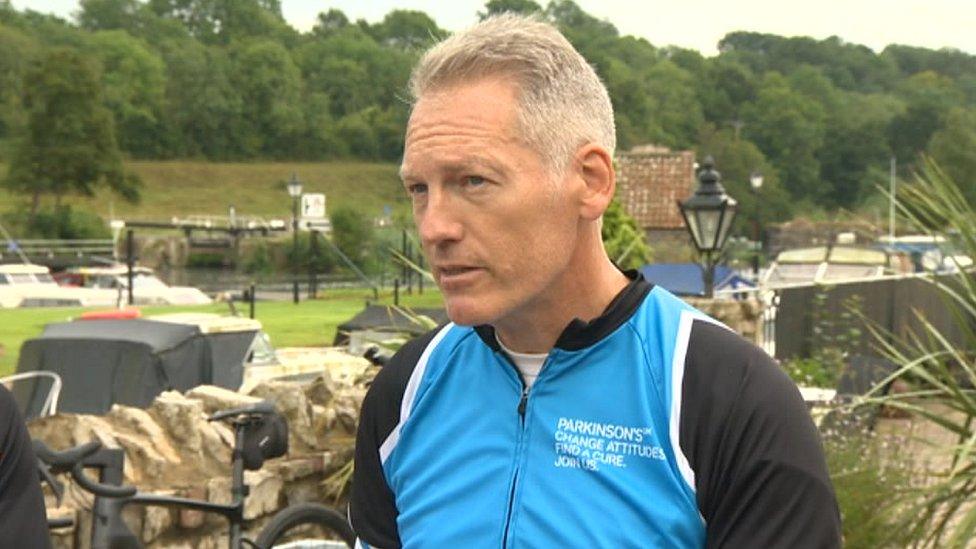
Gary Shaughnessy said a second trial of GDNF could prove the drug's effectiveness
Parkinson's UK has bought the rights to GDNF in the hope of starting a new trial using a stronger dose. It's efforts are supported by three charities including Funding Neuro that Mr Calder raised the money for.
Chair of Parkinson's UK Gary Shaughnessy, who also has Parkinson's and cycled the distance from Bath to London with Mr Calder on Wednesday, said: "The first GDNF trial, three and a half years ago, was inconclusive, but clearly some people on the trial saw a real benefit.
"So what we want to do is, given we've seen the potential that's there, is look to do a new trial - make sure it's safe, make sure it's as many people as possible, for a longer period of time, and robust, so that we can prove that hopefully the drug does work, and then have a cure for people living with the condition today."
Meanwhile, the neurosurgeon Steven Gill has also developed a gene therapy technique using GDNF.
He intends to start a trial on patients with motor neurone disease next year and hopes the same gene therapy could one day help cure sufferers of Parkinson's disease as well.

Follow BBC West on Facebook, external, Twitter, external and Instagram, external. Send your story ideas to: bristol@bbc.co.uk , external
Related topics
- Published16 September 2021
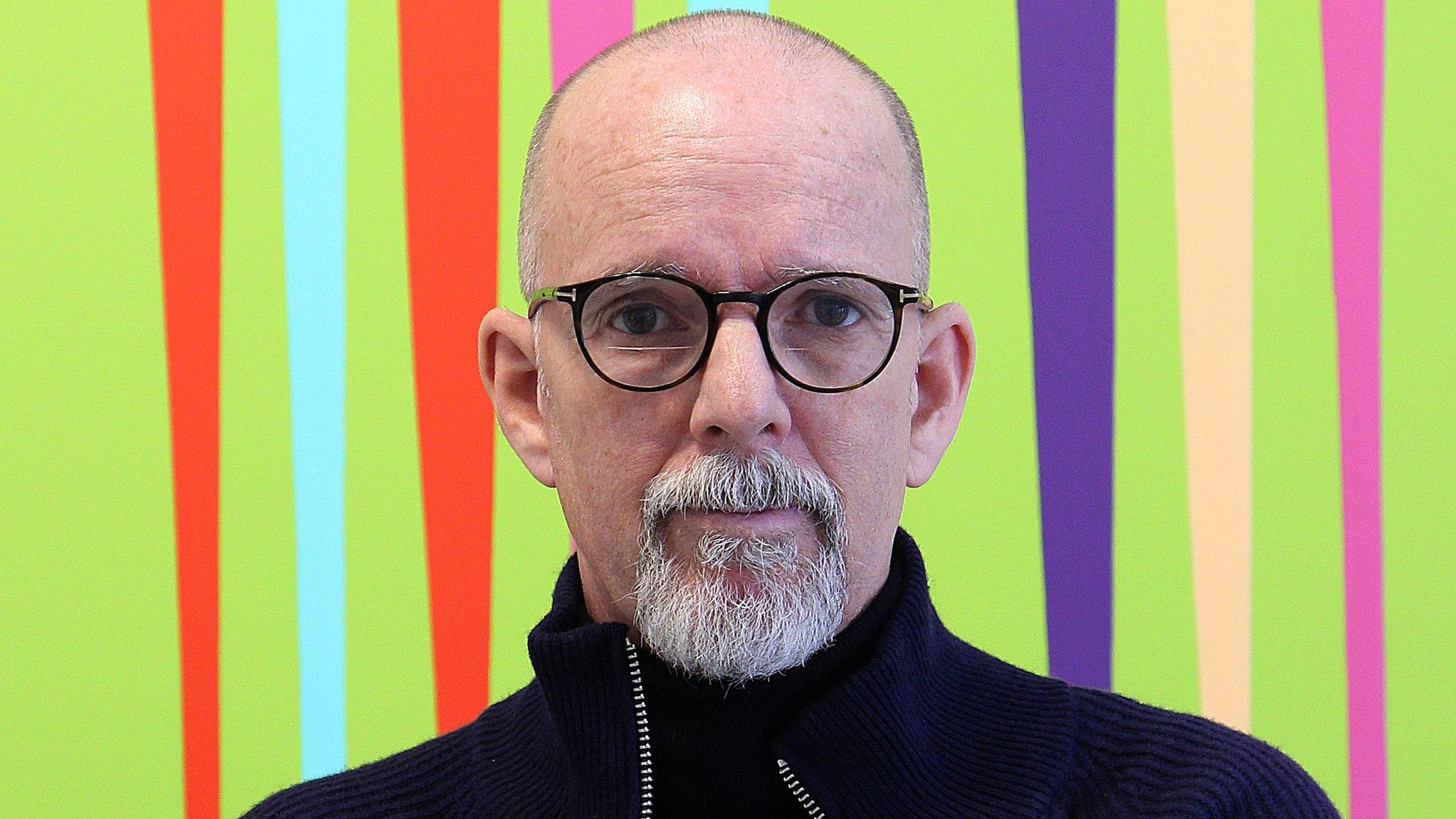
- Published23 June 2021
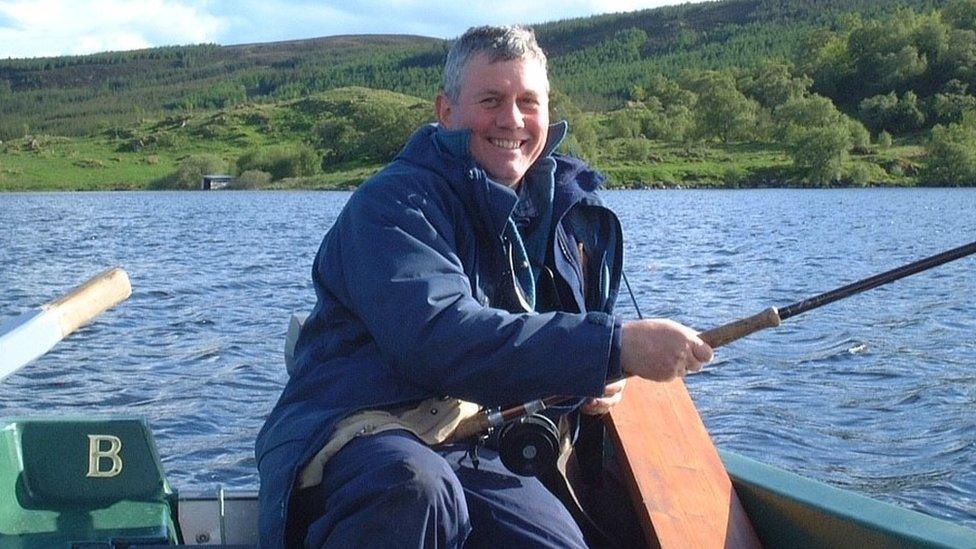
- Published27 February 2019
